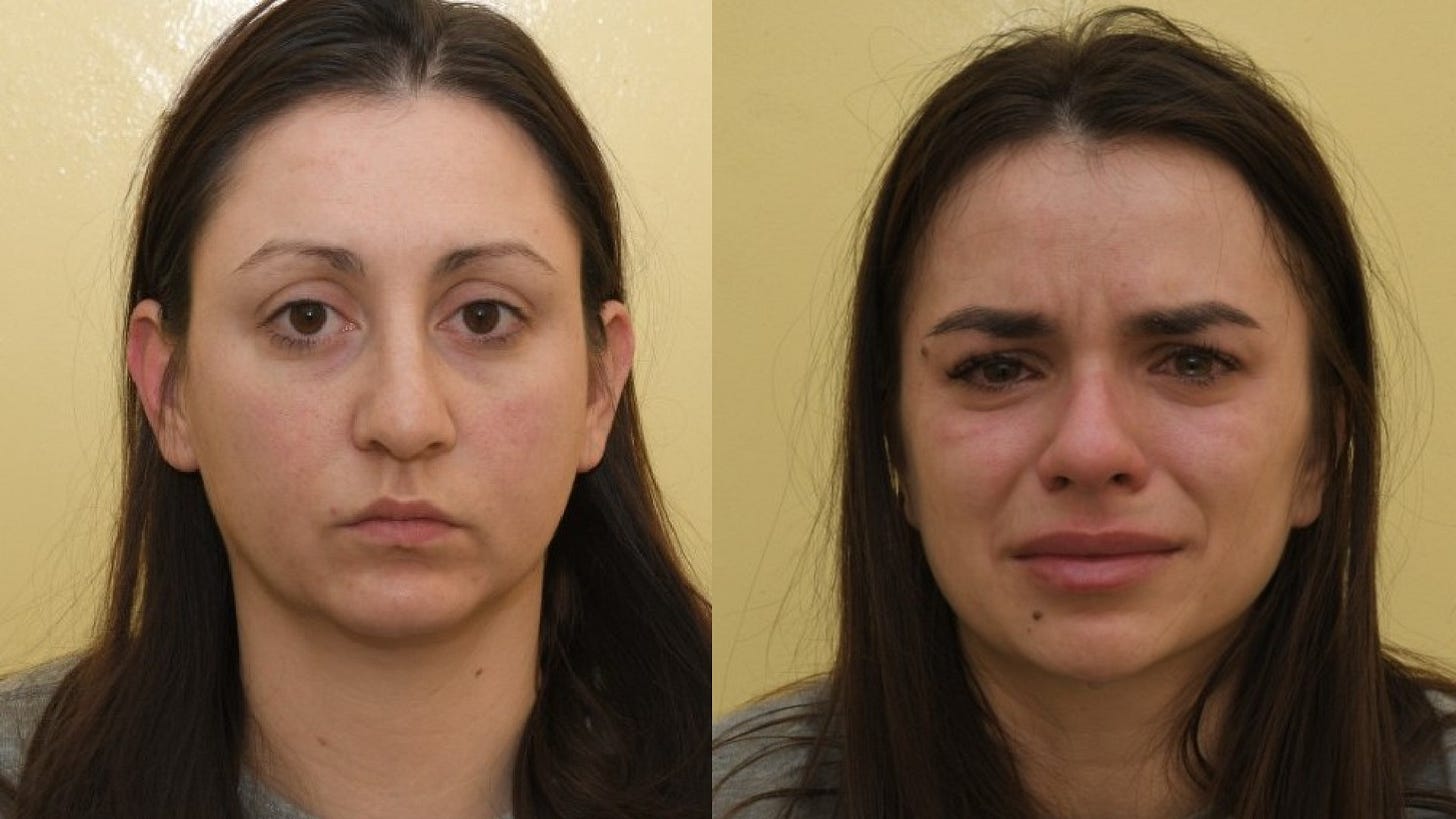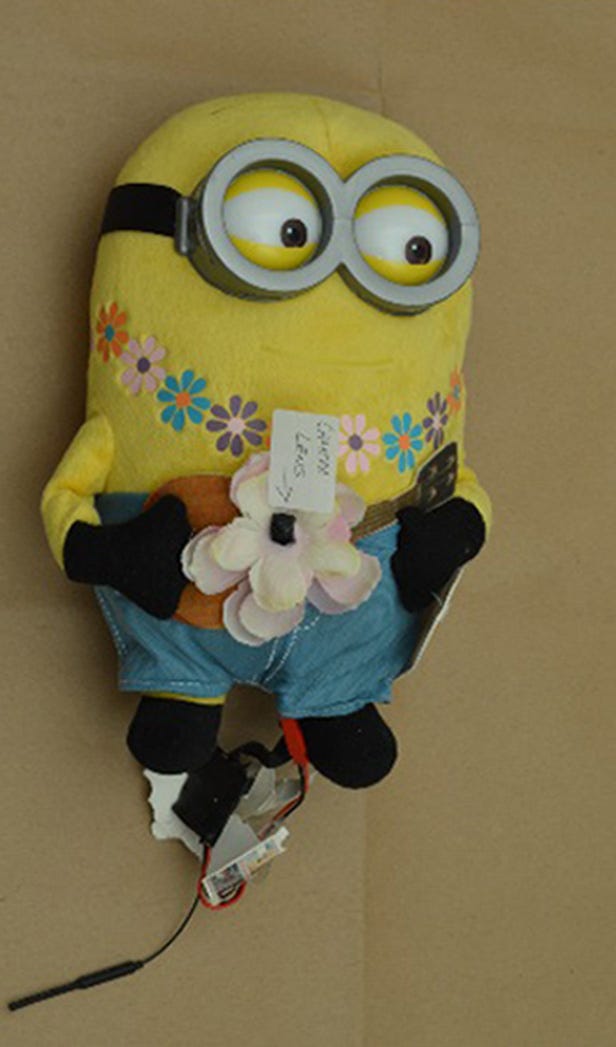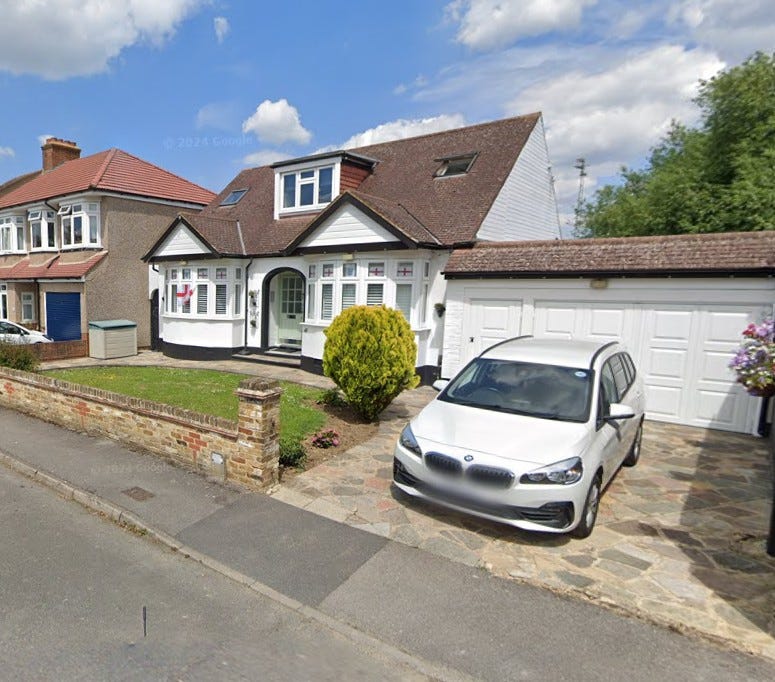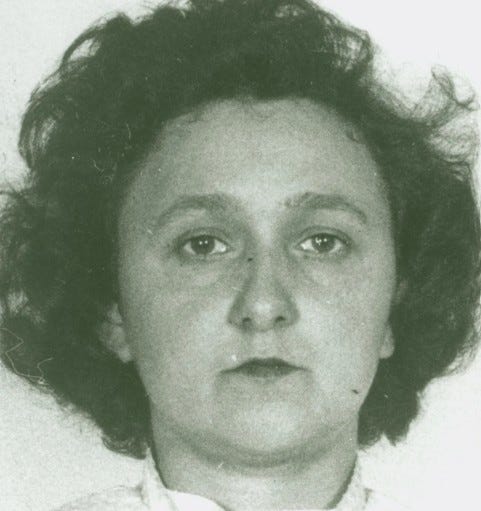Six Bulgarians who spied for Russia have been jailed for spying on “an industrial scale” and putting Britain’s national security at risk.
But where do “honeytrap” agents Katrin Ivanova, 33, and Vanya Gaberova, 30, and their accomplices sit in the pantheon of spying greats?
In today’s Substack I look at the heyday of Cold War spying in Britain but also pick out a couple of cases from around the world you might never have come across before.
On Monday (12 May) Ivanova (pictured above left, with Gaberova) and four other Bulgarians were jailed at the Old Bailey.
The ringleader Orlin Roussev, 47, was jailed for 10 years and eight months, his second-in-command Biser Dzhambazov, 44, got 10 years and two months, and Ivanova was sentenced to nine years and eight months.
Tihomir Ivanov Ivanchev, 39, was given eight years, Ivan Stoyanov, 33, was jailed for five years and three weeks, and Gaberova got six years and eight months.
A trial which lasted three months heard the spy network was directed by a Russian agent Jan Marsalek (pictured below), an Austrian businessman who is wanted by Interpol following the collapse of German finance firm Wirecard.
A photo (shown below) was taken of Grozev (left) and Roman Dobrokhotov - the editor-in-chief of The Insider, a media outlet that was heavily critical of Russia’s President Vladimir Putin - as they socialised beside a pool in Montenegro.
But Ivanova’s barrister Rupert Bowers KC told the court on Friday his client was in a different league to master spies like George Blake.
In his sentencing remarks, the judge, Mr Justice (Nicholas) Hilliard KC, said he had heard evidence from Matthew Collins, a British national security adviser, who said the targeting journalists undermines the freedom of the press, which was “one of our core democratic values”.
“It is also important that the UK is seen as a safe country for those fleeing persecution due to their opposition to and criticism of the regime in Russia,” said Judge Hilliard, who said all the defendants had acted out of a desire for “significant financial gain.”
He told Gaberova: “You found what you were doing exciting and glamorous as demonstrated by the film you took of yourself wearing the surveillance glasses in Montenegro.”
The trial heard the Bulgarian ring - who used a secret camera hidden in a Minions toy - actually unearthed very little, so they might not actually rank too highly.
But let’s look at some of the biggest spying cases in British and world history.
George Blake
As he was mentioned by name during the sentencing hearing, it’s only fitting to start with George Blake.
Blake was born George Behar in Rotterdam in 1922, the son of a Spanish Jew who had fought with the British Army during World War One and acquired British citizenship as a result.
Aged 13, young George - whose family had changed their surname to Blake - was sent to Cairo where he was heavily influenced by his cousin, a dedicated communist.
In 1939 he moved back to Rotterdam and was living there when the German army invaded the following year.
After working for the Dutch resistance, Blake (pictured) managed to make his way to Gibraltar and joined British intelligence.
He learned Russian at Cambridge University after the war and was sent to Korea by MI6 in the early 1950s, only to be captured by the communist North during the Korean War.
By the time the war ended in 1953, and he returned to Britain, he was a Soviet agent.
Between 1955 and 1964 Blake, based in West Berlin, did untold damage to British intelligence and is believed to have betrayed 40 MI6 agents in eastern Europe, many of whom were executed.
Blake pleaded guilty to five counts of passing information to the Soviet Union, having been assured he would get no more than 14 years in jail.
But a judge gave consecutive 14 year terms for three of the counts, leading to a whopping 42 year sentence - the longest sentence imposed at the time, other than life sentences.
In 1966 he managed to escape from Wormwood Scrubs prison and he was then smuggled to East Germany, and eventually all the way to Moscow.
He was given the title of colonel in the KGB, a pension and an apartment in Moscow.
But his wife Gillian divorced him on the grounds of constructive desertion by way of treason, and was awarded custody of their three children.
Years later, long after the collapse of the Soviet Union, he was awarded the Order of Friendship by Russian President Vladimir Putin.
In 2012 he told an interviewer: “When I lived in the West I always had the risk of exposure hanging over me. Here, I feel free."
Blake died in Moscow in December 2020, aged 98.
Philby, Burgess and MacLean
Even more famous, or infamous, than Blake was the trio of Kim Philby, Donald Maclean and Guy Burgess, who were part of what became known as the Cambridge Five.
They all spied for the Soviet Union between the 1930s and the early 1950s, largely because of their secret passion for communism, which they believed was a better system than western-style capitalism.
Burgess and Maclean, who were both incorrigible alcoholics whose homosexuality (or bisexuality in Maclean’s case) made them extremely vulnerable considering the mores of the time, leaked numerous secrets to their KGB handlers until April 1951, when Soviet messages were decrypted.
Tipped off shortly before they would have been arrested, the pair fled to the Soviet Union.
The Daily Express first reported their defection and it led to a feverish series of articles, questioning how many other Soviet spies were in MI6.
But it was not until 12 years later that “The Third Man” - Harold “Kim” Philby - was unmasked, after he too fled to Moscow.
Burgess - after years of heavy drinking in Moscow - died in 1963, aged 52.
Maclean died, aged 69, in 1982, while Philby passed away in 1988, aged 76.
Philby’s widow Rufina Pukhova - his fourth wife - said he was “disillusioned with communism by the end of his life, tortured by his failings, and drank himself to death.”
Anthony Blunt
The fourth and fifth members of the Cambridge Five were only identified years later.
The identity of the “Fourth Man” was confirmed by none other than the Prime Minister, Margaret Thatcher, in November 1979 - only a few months after she had entered 10 Downing Street.
She was apparently infuriated when she learned that Blunt - a gay art historian who had been knighted for his role as Surveyor of the Queen's Pictures - had been given immunity from prosecution in 1964 by the then Prime Minister Alec Douglas-Home.
So when a Labour MP wrote to her about the matter, she surprised MI5 - for whom Blunt had worked - by giving Blunt’s name.
Blunt died in 1983, aged 75.
The identity of “The Fifth Man” - John Cairncross - was only confirmed in 1990 by a KGB defector Oleg Gordievsky.
Cairncross - who had also been given immunity - died in 1995, aged 82.
The Ruislip Spies
Peter and Helen Kroger lived quietly at 45 Cranley Drive, a modest suburban street which nowadays backs onto Wealdstone FC’s football ground, Grosvenor Vale.
But the couple - whose real names were Morris and Lona Cohen - were actually Soviet spies.
In January 1961 they were convicted of spying and jailed for 20 years. Eight years later they were swapped with some British agents and spent the rest of their lives in Russia.
It emerged at their trial that a radio transmitter was hidden at 45 Cranley Drive (pictured) and at the weekends a KGB agent, Konon Molody - who used the name Gordon Lonsdale - communicated with his bosses in Moscow and passed on secret information from the Admiralty Underwater Weapons Establishment at Portland in Dorset.
Lona died in Moscow in 1992 - after being immortalised on a postage stamp - and her husband three years later.
The BBC wrote this fascinating article about the Ruislip spies in 2014, to coincide with Vincent Dowd’s radio programme, Spies in Suburbia.
Julius and Ethel Rosenberg
It is not only Britain which has been the target for spying, of course.
In 1949 - at the height of the Cold War - the FBI learned the secrets of the US’s atomic weapons programme had been leaked to the Soviets by Klaus Fuchs, a German-born British scientist. He was arrested in February 1950 but did not know the identity of the Americans who had passed on the secrets.
They were eventually identified as Julius and Ethel Rosenberg (pictured), and in April 1951, they were convicted of spying charges in the US and sentenced to death.
Another spy, Morton Sobell, was jailed for 30 years.
After several legal appeals were rejected, the Rosenbergs were finally executed by electric chair in June 1953.
The case happned at a time of heightened paranoia in America about communist spies, when Senator Joseph McCarthy was carrying out witch-hunts against “reds under the bed”.
The FBI has a fascinating page all about the Rosenbergs and their accomplices.
Aldrich Ames
The Cold War ended when the Soviet Union collapsed in 1991.
But three years later the FBI unmasked a spy who had been worked for the communist superpower for years.
Aldrich Hazen Ames was arrested in Arlington, Virginia on on February 21, 1994.
Ames, who worked for the CIA, had been spying for the Soviets since 1985.
He tipped off Moscow about the identities of several Russian officials who had been secretly recruited by the CIA. All were arrested and executed.
Ames - who apparently did it all for money, and was paid almost $2 million in total - was sentenced to life without the possibility of parole.
Now aged 83, he is still in prison, at the Federal Correctional Institution in Terre Haute, Indiana.
Eli Cohen
Comedian-turned-actor Sacha Baron Cohen played Eli Cohen in the Netflix movie The Spy, so spoiler alert!
Born into an Egyptian Jewish family, Cohen moved to Israel in 1956 and joined Mossad, who recruited him because he was fluent in Arabic and could pass for an Arab.
In 1961 he moved to Argentina to create a back story for his false identity as a Syrian businessman.
The following year Cohen moved to Damascus and immediately began to immerse himself in Syrian high society, inviting politicians, army officers and diplomats to sumptuous parties at his home.
He spent three years compiling secret information for Israel, which he passed back in secet letters and radio transmissions.
Cohen’s espionage is credited for giving Israel the strategic advantage in the Six Day War in 1967, when they seized the Golan Heights from Syria, based on intelligence Cohen had obtained during a visit.
But by then he was dead.
The Syrians, helped by their Soviet advisers, traced secret radio transmissions to Israel to Cohen.
He was hanged in public in Damascus on May 18, 1965.
Oleg Gordievsky
Gordievsky - who I have already mentioned - was an agent of MI6 working within the KGB for much of the 1980s.
In 1985, fearing his cover was blown, he escaped over the border into Finland in the boot of a car.
He turned up in London and briefed MI6 and MI5 with information which led to 25 Soviet agents in London being exposed.
Honoured with a medal by the Queen, Gordievsky died in Surrey in March 2025, aged 86.
It’s safe to say he is still to this day despised in Russia as a traitor.
Wo Weihan
In 2008 Wo Weihan, a 59-year-old scientist was found guilty of spying for Taiwan and executed by firing squad.
Wo was said to have bought missile secrets from a Chinese source, who was also executed.
His daughters, Ran Chen and Di Chen, produced a statement later that day saying: “His life was taken from him before he or our family could say its last goodbyes.”
“The entire process – from arrest to execution – was conducted in a way that was degrading to both my father and our family. We were all misled, led to have false hope, denied the fundamental right to be informed, and forced to suffer,” they added.
Daniel Khalife
Probably the worst spy of the lot was British soldier Daniel Khalife, who tried to spy for Iran but was considered a bit of a joke all round.
Khalife hit the headlines after he escaped from Wandsworth prison in September 2023. I wrote a Substack about him earlier this year.
After getting out of prison he wandered around west London, buying clothes from Marks & Spencer and a coffee at McDonalds and at one point contacted his Iranian contact on Telegram, writing: “I wait.”
But instead of being rescued and whisked off to Tehran, Khalife was finally recaptured by police on the towpath of the Grand Union Canal in Northolt, north west London, three days later.
He was later jailed for 14 years and three months.











